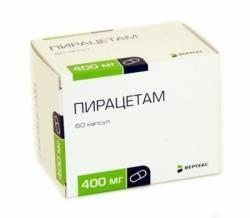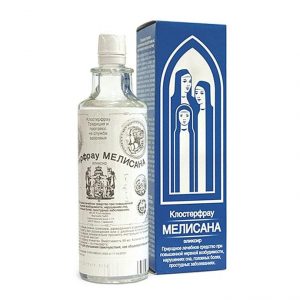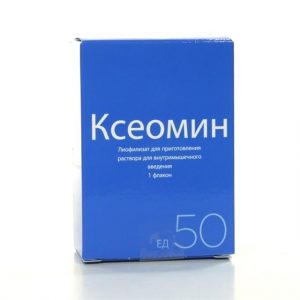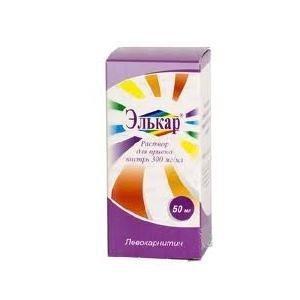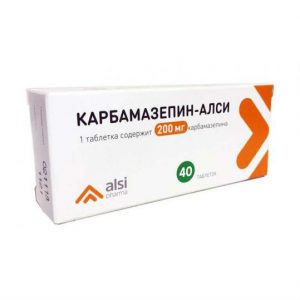Description
Release form
Capsules.
Packing
60 pcs.
Pharmacological action
Farmgroup: nootropic agent.
Pharmaceutical action: A cyclic derivative of GABA, a nootropic agent acts directly on the brain, improving cognitive (cognitive) processes, such as learning ability, memory, attention, and mental performance.
It affects the central nervous system in various ways: it changes the rate of excitation in the brain, improves metabolic processes in nerve cells, improves microcirculation, affects the rheological characteristics of the blood without having a vasodilating effect.
Improves the connection between the cerebral hemispheres and synaptic conduction in neocortical structures, improves cerebral blood flow.
Inhibits platelet aggregation and restores the configuration properties of the outer membrane of rigid erythrocytes, as well as the ability of the latter to pass through the vessels of the microvasculature. At a dose of 9.6 g, it reduces the concentration of fibrinogen and von Willebrand factor by 30-40% and lengthens the bleeding time.
It has a protective and restorative effect in case of impaired brain function due to hypoxia and intoxication.
Reduces the severity and duration of vestibular nystagmus.
Pharmacokinetics: Absorption upon oral administration is fast and complete. Bioavailability is about 100%. After a single oral administration at a dose of 3.2 g Cmax – 84 μg / ml, after repeated (3.2 g 3 times a day) – 115 μg / ml, TCmax in plasma – 1 h, CSF – 5 h. Eating reduces Cmax by 17% and increases TCmax up to 1.5 hours. In women, Cmax and AUC after taking 2.4 g are 30% higher than in men.
Vd – about 0.6 l / kg. Penetrates through the BBB and the placental barrier is removed during hemodialysis. In animal experiments, it selectively accumulates in the tissues of the cerebral cortex, mainly in the frontal, parietal and occipital lobes, in the cerebellum and basal nuclei.
Does not bind to plasma proteins, is not metabolized.
T1 / 2 – 4-5 hours from blood plasma and 8.5 hours from CSF. 80-100% of piracetam is excreted by the kidneys unchanged by glomerular filtration. The total clearance is 80-90 ml / min. T1 / 2 lengthens with chronic renal failure (with terminal chronic renal failure – up to 59 hours). Hepatic insufficiency does not affect the pharmacokinetics of piracetam.
Indications
In adults: symptomatic treatment of psycho-organic syndrome, accompanied by decreased memory, decreased concentration and activity, mood changes, behavior disorders, impaired gait
treatment of dizziness (vertigo) and related balance disorders (except for vertigo of vasomotor and psycho-psychogenic origin) )
cortical myoclonus (monotherapy or as part of complex therapy)
prophylaxis (oral) and relief (parenteral) of sickles bottom cell vazookklyuzionnogo crisis.
In children: dyslexia in children from 8 years old in combination with other methods, including speech therapy treatment
prophylaxis (oral) and relief (parenteral) of sickle cell vaso-occlusive crisis.
Contraindications
Hypersensitivity, severe chronic renal failure (CC less than 20 ml / min), hemorrhagic stroke, psychomotor agitation, Huntington’s chorea, pregnancy, lactation.
Caution. Violation of hemostasis, extensive surgery, severe bleeding, chronic renal failure (CC 20-80 ml / min).
Special instructions
Use with caution in patients with impaired hemostasis, before upcoming extensive surgery vb or in patients with symptoms of severe bleeding.
In the treatment of cortical myoclonia, abrupt cessation of treatment should be avoided, as this can cause renewed seizures.
In the treatment of veno-occlusive crisis with sickle cell anemia, a dose of less than 160 mg / kg or irregular administration of the drug can cause a crisis recurrence.
With prolonged therapy in elderly patients, regular monitoring of renal function is recommended, if necessary, dose adjustment is carried out depending on QC.
Penetrates through the filtering membranes of hemodialysis machines.
During the treatment period, care must be taken when driving vehicles and engaging in other potentially hazardous activities that require an increased concentration of attention and speed of psychomotor reactions.
Composition
Piracetam 400 mg.
Dosage and administration
Inside (during meals or on an empty stomach, washed down with liquid) in / in a stream or drip, in / m (in case of difficulty in swallowing or in an unconscious state).
The last dose is taken no later than 17 hours (to prevent sleep disturbance).
The daily dose is divided into 2-4 doses.
Symptomatic treatment of the psycho-organic syndrome: 4.8 g / day for the first week, then switch to a maintenance dose of 1.2-2.4 g / day.
Treatment of dizziness and related imbalances: 2.4-4.8 g / day.
Treatment of cortical myoclonia: start with a dose of 7.2 g / day, every 3-4 days the dose is increased by 4.8 g / day until the maximum dose of 24 g / day is reached. Treatment continues throughout the period of the disease. Every 6 months you should try to reduce the dose or cancel the drug, gradually reducing the dose by 1.2 g / day every 2 days. With a slight therapeutic effect or its absence, treatment is stopped.
In sickle-cell vaso-occlusive crisis (in adults and children): prophylaxis – by mouth, 160 mg / kg / day, divided into 4 equal doses. A dose of less than 160 mg / kg / day or an irregular intake of the drug can cause an exacerbation of the disease iv treatment at 300 mg / kg / day, divided into 4 equal doses.
Treatment of dyslexia in children over 8 years old (in combination with other treatment methods) – 3.2 g divided into 2 equal doses.
In case of mild CRF (CC 50-79 ml / min) – 2/3 of the dose divided into 2-3 doses of the medium (CC 30-49 ml / min) – 1/3 of the dose divided into 2 doses of severe (CC 20 -30 ml / min) – 1/6 dose once.
Side effects
From the side of the central nervous system: motor disinhibition, irritability, drowsiness, depression, asthenia, headache, insomnia, mental agitation, imbalance, ataxia, exacerbation of the course of epilepsy, anxiety, hallucinations, confusion.
From the digestive system: nausea, vomiting, diarrhea, abdominal pain.
Metabolism: weight gain.
On the part of the sensory organs: vertigo.
From the skin: dermatitis, itching, urticaria.
Allergic reactions: hypersensitivity, anaphylactic reactions, angioedema.
Local reactions: pain at the injection site, thrombophlebitis
Other (with parenteral administration): fever, decreased blood pressure.
Drug Interactions
When used simultaneously with iodine-containing thyroid hormones, confusion, irritability, and sleep disturbance may occur.
At high doses (9.6 g / day) in patients with venous thrombosis, it increases the anticoagulant effect of indirect anticoagulants (a more pronounced decrease in platelet aggregation, fibrinogen, von Willebrand factor, blood viscosity and plasma).
Pharmaceutically compatible with solutions of dextrose (5%, 10%, 20%), fructose (5%, 10%, 20%), 0. 9% NaCl solution, Ringer’s solution, 20% mannitol solution, hydroxyethyl starch (6%, 10%).
Overdose
Symptoms: abdominal pain, diarrhea mixed with blood.
Treatment: induction of vomiting, gastric lavage, symptomatic therapy, hemodialysis (50-60% effective). There is no specific antidote.
Active ingredient
Piracetam
Terms and conditions
prescription
capsule dosage form
